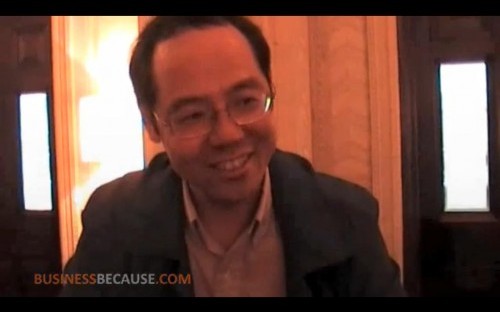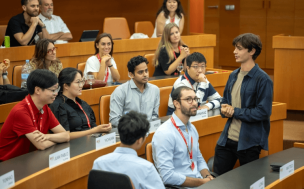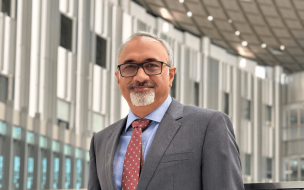He also has the distinction of being the first person from the People’s Republic of China to teach finance in a major American university and the first scholar to return and work in China on a full-time basis after becoming a tenured finance professor at a major American university.
We met the friendly professor when he was on a recent trip to London, and he told us why SAIF is bound to succeed, his return to China, and the uncertain future of finance.
SAIF was established two years ago with a mission to educate the men and women who will be running trading floors and investment banking divisions when Shanghai becomes a global financial center in 2020.
Chang told us what he thinks makes SAIF different to other business schools in China.
The first difference is that unlike other public institutions like Tsinghua University and Beijing University, where faculty hiring and tuition fees are set by the government, SAIF (which also receives government funding) has been given more freedom.
The SAIF executive team can hire faculty from abroad, with teaching and research experience in other countries, so teaching will be of an international standard.
Second, SAIF’s MBA is the only one specializing in finance, as opposed to a general management MBA.
Finally, the SAIF has set very high standards for teaching and research, hiring faculty from around the world to apply their knowledge to China’s environment.
Chang graduated in Mathematics from East China Normal University in 1982. His first love was social science, but at the time the economics taught at Chinese universities was, he said, “doctrine-based”.
He headed for the US, where he had a scholarship to study for an MSc in Math at the University of Oregon. He finally made the shift to business school when he was accepted for a PhD in finance and economics at the Kellogg School of Management In Chicago.
In 1987 he joined the faculty at the Carlson School of Management, at the University of Minnesota and stayed for 19 years, ending up as a chaired professor.
He returned to China in 2003, lured by an offer from the China Europe International Business School (CEIBS).
Now Chang’s priority is to find others as good as him and lure them back too.
He has already recruited four senior professors from the US. SAIF now has 25 full-time and special term professors and Chang’s goal is to double or triple the faculty within the next three years.
Watch the video to hear more from Professor Chang.
RECAPTHA :
8f
4d
0f
44







